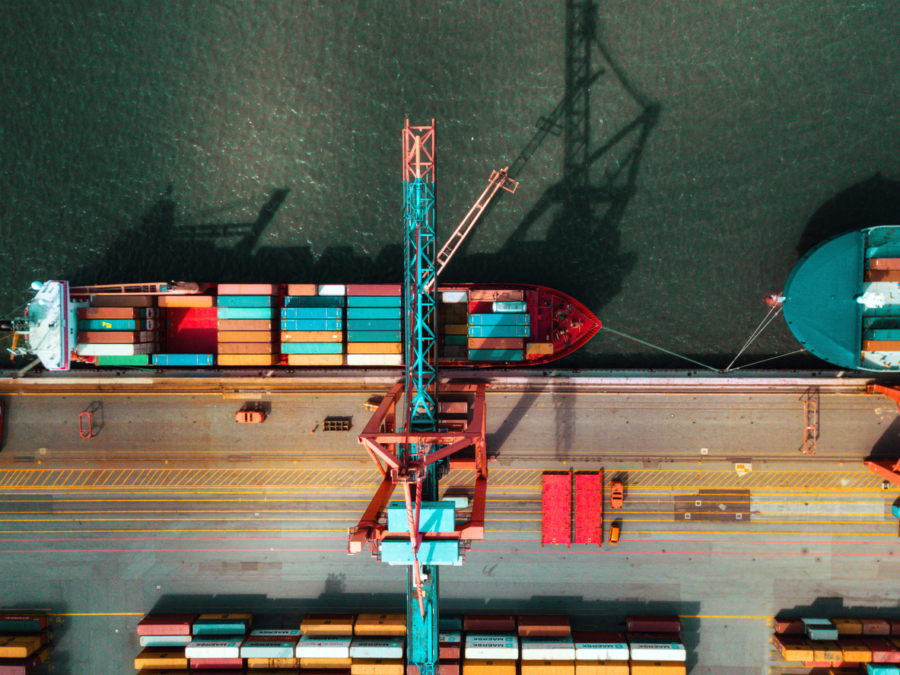
The hidden impact of tariffs: Why European businesses need smarter Contract Lifecycle Management now and more than ever
Discover the hidden impacts of tariffs on European business and learn effective strategies to mitigate them.

As the United States and the European Union (EU) continue to negotiate tariffs, European businesses are finding themselves in an increasingly complex and unpredictable environment. According to the European Commission, the transatlantic trade relationship is the most important commercial relationship in the world. In fact, in 2023, the EU exported €503 billion of goods to the US market, while importing €347 billion; this resulted in a goods trade surplus of €157 billion for the EU.
With the ongoing political climate and changing regulations, these negotiations are not just about trade policy, they directly impact supply chains, contract terms, pricing strategies, and long-term planning.
Tariffs: More Than Just Numbers
For many companies, tariffs can have a ripple effect. They alter the cost of goods, shift sourcing strategies, and complicate supplier agreements. In some cases, they can even delay or derail entire projects.
Tariff uncertainty creates significant instability in global trade, as policies are constantly shifting, disrupting supply chains and market predictability. Recently, the Trump administration announced sweeping tariff increases on imports for various countries, including the European Union, according to the European Parliament. The European Steel Association (EUROFER) also mentions that with EU steel exports to the U.S. already having fallen by 1 million tonnes, the EU now stands to lose at least another 1 million tonnes of steel exports to the US. Tariffs can unexpectedly inflate costs for both consumers and businesses, leading to potential price hikes and supply shortages. For industries reliant on imports, such as manufacturing and technology, even minor changes in tariff structures can result in delays and increased operational costs.
And the impact doesn’t stop at borders. When companies rely on globally distributed supply chains, any change in trade terms can lead to costly renegotiations, compliance concerns, and operational delays.
One procurement lead recently joked, “We used to talk about seasonal trends. Now, we have to watch trade press like weather reports ‘70% chance of tariffs, better renegotiate your supplier clauses.”
The challenge of EU regulation
Tariffs are only one part of the equation. European businesses must also navigate a complex and ever-evolving regulatory landscape within the EU. According to a PwC report, 88 percent of global companies say that GDPR compliance alone costs their organization more than $1 million annually, while 40% spend more than $10 million. From dual-use regulations to sector-specific compliance frameworks, staying on top of obligations is a constant challenge.
And yes, sometimes these rules can feel borderline absurd. We once heard of a logistics manager who discovered that exporting certain industrial fans required clearance because, technically, they could be used to cool missile silos. While that wasn’t quite the intention, the regulation still applied.
Another company learned the hard way that labelling requirements in Italy differ ever-so-slightly from Germany, cue a warehouse full of goods needing re-labelling because the font size on an allergen warning didn’t meet one country’s standards.
Why Contract Lifecyle Management (CLM) is a strategic necessity
A total of 41 percent of boards of directors view geopolitical power shifts and turbulence as one of the biggest risks to performance, according to a Gartner survey. In this environment, CLM software has evolved from a back-office tool to a strategic imperative.
CLM platforms allow companies to:
- Identify and assess contractual risks tied to tariffs and regulations
- Model “what if” scenarios to prepare for future trade developments
- Track regulatory clauses across large contract portfolios
- Centralise and standardise contracts across departments and regions
- Automate compliance and renewal workflows
With the right CLM system in place, businesses can move from reactive to proactive, making informed decisions with full visibility into the contractual impacts of changing trade conditions.
Why Agiloft is uniquely positioned to help
Agiloft offers a no-code, AI-enhanced CLM platform that is built for flexibility, scale, and complexity.
But what makes Agiloft different?
- It’s fully customisable without technical expertise
- It’s enhanced with AI-powered insights that surface key risks and opportunities
- Agiloft CLM has a proven track record with global enterprises navigating complex legal and regulatory environments
One Agiloft customer in the healthcare industry reduced contract review times by more than 50% after implementing AI-powered clause recognition across global vendor contracts. Whether it’s tracking hundreds of clauses or preparing for the next sudden regulation update, Agiloft helps organisations keep calm and contract on.
Let’s talk
About Rene
Rene is a German professional based in the UK with extensive experience across all European markets, specialising in Contract Lifecycle Management (CLM) for large enterprises. At Agiloft, he helps organisations take full control of their contracts and unlock business value through intelligent CLM. Leveraging Agiloft’s no-code platform, he partners with legal, procurement, sales, and finance teams to streamline workflows, reduce risk, and accelerate revenue—delivering measurable outcomes across the entire contract lifecycle.
Previously, Rene served as Territory Manager DACH at Conga, where he led CLM and digital transformation initiatives across Europe, focused on empowering General Counsels, Legal, and Commercial teams. His deep understanding of the complex regulatory landscape and the impact of tariffs on European enterprises has given him a unique perspective on how these factors affect global operations for customers. Rene is recognised for his ability to listen, adapt, and deliver tailored solutions that drive efficiency, ensure compliance, and support sustainable growth.
Recent
Posts
Learn about the realities of AI today, its limitations and capabilities, and its use as a “force multiplier” for contracting.
If there is one message for tech buyers as we approach 2024, it is that AI is here – ready or not.
With the introduction of ConvoAI, Agiloft delivers the same benefits of simplified AI experiences to the world of contracts.






